ASUU gets new president
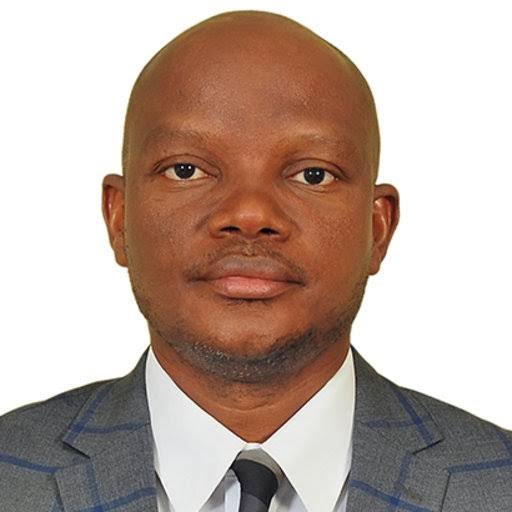
The Academic Staff Union of Universities (ASUU) has appointed Professor Chris Piwuna, a consultant psychiatrist and Dean of Student Affairs at the University of Jos, as its new national president. He succeeds Professor Emmanuel Osodeke, a soil scientist from Michael Okpara University of Agriculture, Umudike, who held the position until the recent transition. READ ALSO: Don’t turn universities to constituency projects, ASUU, CONUA warn FG The announcement came during the union’s 23rd National Delegates Congress, held in Benin City, Edo State on Sunday. According to sources, Piwuna emerged victorious in a tightly contested election against Professor Adamu Babayo of Abubakar Tafawa Balewa University, Bauchi. READ ALSO: ASUU warns against scrapping of education tax fund in tax reform bills Piwuna steps into leadership at a time of growing tension in the academic sector, as unresolved issues surrounding the distribution of Earned Academic Allowances and the increasing exodus of academic professionals continue to stir concerns.
Funding: Universities will have heartache if they rely solely on government – Sunmonu
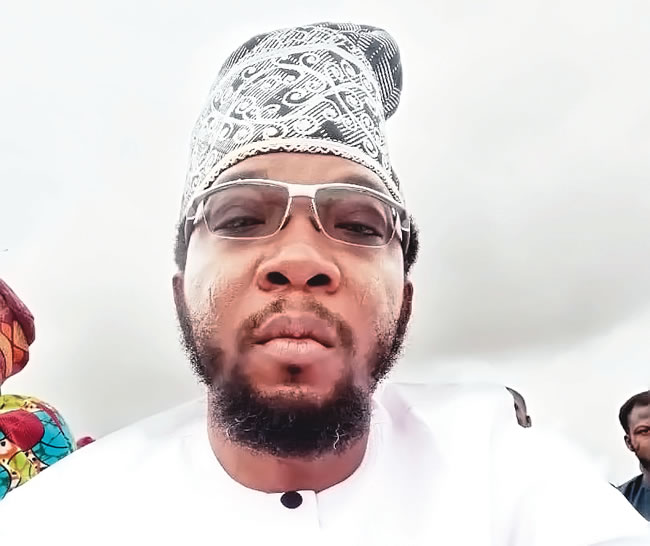
Dr ‘Niyi Sunmonu is an Associate Professor of Atmospheric Physics in the Department of Physics & Engineering Physics of the Obafemi Awolowo University, Ile-Ife, Nigeria and he is the National President of the Congress of University Academics, CONUA. In this exclusive interview with The New Daily Prime, he speaks on several issues, including how the congress was registered as an academic staff union in the Nigerian university system. Excerpts. Can you tell us about the registration of CONUA? Sunmonu: It was a very tortuous task. CONUA started the registration process in May 2018 after more than 700 academics were expelled from ASUU in OAU. This process was completed on 17th January 2023, having been previously given a provisional letter of registration on 4th October 2022. So, the registration process took a period of about five years to materialize. Before and up to the point of registration, the journey was both rough and tough. The first test of our mettle as a union occurred when the application was rejected. The refusal of our application for the registration of CONUA as a Trade Union was communicated to us in a letter dated 23rd January 2019, with the caveat that “you also have the right to appeal the refusal of the application to be registered as a trade union to the Honourable Minister within 30 days of the receipt of this letter in line with section 5(b) of the Trade Union Act CAP.T.14 of 2004”. The leadership immediately identified 23 grounds of appeal and prepared six annexures, and the appeal, dated 28th January 2019 and addressed to the Honourable Minister of Labour and Employment, was promptly filed by our counsel. About a year later, the Ministerial Committee set up immediately the appeal filed and invited the leadership of CONUA to a formal meeting scheduled for 22nd January 2020. The meeting was held in the Conference Room of the Honourable Minister of Labour and Employment. Subsequently, the Honourable Minister of Labour and Employment invited the CONUA leadership to a public meeting held on 19th November 2020, where the justification for the registration of CONUA as an academic Trade Union was further elucidated upon. The Honourable Minister, in his response, gave the Ministerial Committee on the appeal for the registration of CONUA four weeks to turn in its report for his consideration. Our leadership and followership were literally forged by fire through physical, psychological and emotional strain as weeks turned into years! During the period, we also had to cope with constant ridicule, taunting and propaganda from ASUU leadership in a bid to suffocate CONUA. By 26th October 2022, ASUU (claimant) had already instituted a case at the National Industrial Court of Nigeria (NICN) against the registration of CONUA through Mr Femi Falana (SAN). Part of the eight reliefs sought included “an order mandating the Federal Government to withdraw the certificate of registration of CONUA”; “an order restraining the FG from recognizing and dealing with CONUA as trade unions in any manner whatsoever and howsoever”; and “an order restraining CONUA from parading itself as a trade union capable of unionizing academic staff in the universities in Nigeria in any manner whatsoever and howsoever”. The intention to asphyxiate CONUA was laid to bare from these reliefs! But, thankfully, on 25th July 2023, the NICN ruled that all “the reliefs prayed for by the claimant are not grantable. They must fail.” The NICN also expatiated on the paragraph 67, section 25 of the Trade Union Act (TUA). It held that “in talking of ‘all registered trade unions in the employment of an employer’ intuits that there can be more than one trade union in employment; and for purposes of collective bargaining, these registered trade unions in employment shall constitute an electoral college to elect members who will represent them in negotiation with the employer. Section 25 accordingly does not intuit trade union monopoly.” It intuits trade union plurality. May I, therefore, use this opportunity to appeal to Nigerians, particularly members of the fourth estate of the realm, including the elites, to seek the truth about these issues. It is then incumbent on us all to uphold the truth after it is discovered. After the registration, we are still battling discrimination and exclusions from the programmes of some government agencies that would ordinarily interface with registered academic unions. For example, CONUA is still facing discrimination from TETFUND, which excluded it on 14th May 2024 from the “Reconstitution of TETFUND National Research Fund Screening And Monitoring Committee (NRFS&MC)”. Another instance is that of the exclusion from the NEEDS Assessment Committee, constituted by the immediate past Honourable Minister of Education, Prof Tahir Mamman (SAN) on 28th August 2024. CONUA’s leadership is following up with the current Minister of Education, Dr. Olatunji Alausa, to seek redress on the oversight. We have had to cope with propaganda from the Comrade Ayuba-Wabba-led NLC, even though CONUA did not approach it for affiliation. Thankfully, CONUA got affiliated with the Trade Union Congress of Nigeria (TUC) on 15th October 2023, after fulfilling all the requirements. Little by little, we are surmounting the “teething” challenges and we are very optimistic about a very bright future. Can you tell us about the spread of CONUA since it was registered? Sunmonu: CONUA started in OAU, grew to five universities by October 2019, and then to about 30 Chapters, as we speak. We are in universities, which include but are not limited to, Michael Okpara University of Agriculture, Umudike; University of Benin; Federal University, Lokoja; Federal University, Oye-Ekiti; Kwara State University, Malete; Ambrose Alli University, Ekpoma; Ahmadu Bello University, Zaria; University of Nigeria, Nsukka; University of Jos; Obafemi Awolowo University, Ile-Ife, Federal University, Wukari, National Mathematical Centre, Abuja, University of Abuja, University of Maiduguri, Alex Ekwueme Federal University, Ndufu-Alike, Ikwo, etc. In short, CONUA has Chapters across all the six geopolitical zones in the country, and it is still growing. READ ALSO: Dele Momodu slams APC for ‘careless’ attacks on Buhari When did you form CONUA? Sunmonu: For “daring”
Don’t turn universities to constituency projects, ASUU, CONUA warn FG
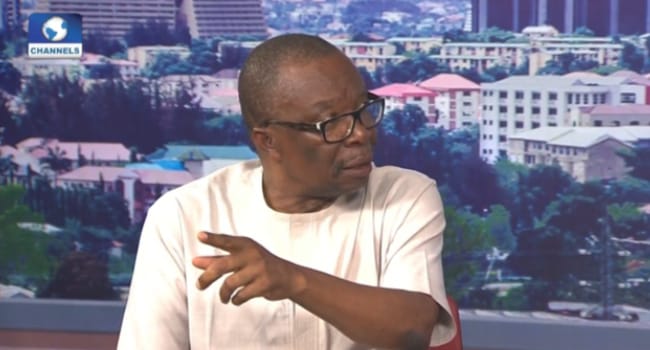
The Academic Staff Union of Universities, ASUU, and the Congress of University Academics, CONUA, have warned the government and members of the National Assembly against turning the setting up of new universities to constituency projects. The academic staff unions in the Nigerian University System, NUS, made their positions known in a chat with New Daily Prime through their National Presidents. The unions were reacting to the creation of 21 new universities by the current administration in the last two years, and the consideration of over 200 bills seeking to create new universities by the National Assembly. The National President of ASUU, Prof. Emmanuel Osodeke, noted that the FG and members of the National Assembly are not handling the issue of setting up new universities well. “When we went on strike in 2022, the proliferation of universities was one of the issues in contention. The situation now has gotten worse. It is so sad and is one way to kill our universities. READ ALSO: ASUU warns against scrapping of education tax fund in tax reform bills “Where are the lecturers, the infrastructure and even the funding? In Abeokuta, they are setting up a University of Medicine when there is the Federal University of Agriculture, why don’t they establish a Faculty of Medicine in UNAAB? It is a way to kill our universities. Why are they setting them up? For what purposes? For political reasons? All those ones they are setting up, can their children attend them? They are just creating Constituency Universities. “In Zaria, we now have two federal universities. In Delta State, we have three federal universities. It is a way of destroying our university system. We hope those universities will be merged later. Where is the money? Where are the facilities? “We learned that there are over 200 bills in the National Assembly seeking the establishment of public universities across the country. Former President Buhari refused to assent to some of the bills then, but they are having a field day now. They also want to convert Yaba College of Technology into a university, but that should not be done. It is a historic institution, the first tertiary institution in the country. Let them let it be.” Also speaking, the National President of CONUA, Dr Niyi Sunmonu, said, “The Congress of University Academics (CONUA) has taken note of the recent licensing of 21 new universities, including the conversion of some polytechnics and/or colleges of education to universities. While the union acknowledges the legitimacy of the growing demand for university education, driven by Nigeria’s large and youthful population, it expresses cautious concern about the current trend. “CONUA affirms that the existing number of universities in the country is insufficient to cater to the increasing quest for quality higher education. However, the union believes that a more prudent approach in the face of dwindling natural resources would be to first focus on strengthening and expanding the capacities of existing universities. “Rather than establishing new universities, many of which are appearing to emerge as “constituency projects,” CONUA recommends that attention be given to improving infrastructure, staffing, research funding, and student support systems (as we currently have in NELFUND) in established institutions. This approach, in the short term, will yield more meaningful improvements in access and quality. “In the long term, CONUA is not opposed to the creation of new universities. However, such expansion should be done methodically and sustainably, guided by clear academic, economic, and infrastructural considerations, not political expediency. “The union urges the Federal Government to balance expansion with quality assurance to avoid weakening the already strained higher education system. Nigeria’s future depends not just on how many universities exist, but how effectively they deliver on their mandate.” However, it was learned that the FG is liaising with the National Assembly to put a lid on the passage of bills seeking to set up more public universities in the country. Education Minister Dr Tunji Alausa has been mandated to spearhead the move. READ ALSO: ASUU warns against scrapping of education tax fund in tax reform bills Currently, Nigeria has over 160 private universities, 63 federal universities and 63 state-owned universities. Last February, the FG, through the National Universities Commission placed a one year embargo on the licensing of new private universities. A lot of people have expressed doubt about the quality of some of the universities in terms of staffing, facilities and quality of education offered to Nigerian youths. By Alade Adisa
ASUU warns against scrapping of education tax fund in tax reform bills
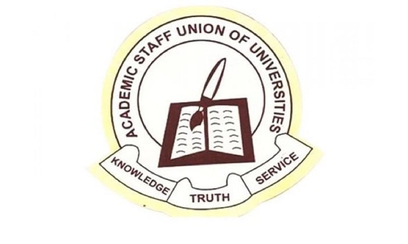
The Academic Staff Union of Universities (ASUU) has strongly opposed the proposed withdrawal of the education tax that supports the Tertiary Education Trust Fund (TETFund), as outlined in the tax reform bills currently being reviewed at the National Assembly. In a memorandum delivered at a public hearing organised by the Senate Committee on Finance on Tuesday, February 25, ASUU President, Professor Emmanuel Osodeke, warned that the removal of TETFund’s education tax would be disastrous for the future of tertiary education in Nigeria. He described the proposed change as a grave threat to the sustainability of public universities, polytechnics, and colleges of education across the country. “TETFund has been the backbone for infrastructural development, postgraduate training, and research capacity building in Nigeria’s public tertiary institutions for the past 15 years, Over 90 per cent of capital projects in these institutions have been funded through TETFund, and it remains the primary source of higher degree training for young academics.” Osodeke stated. The ASUU President expressed concern that the tax reform bills, particularly the Nigeria Tax Bill 2024, proposed allocating only 50 per cent of the development levy to TETFund in 2025 and 2026, with the remainder being shared with other agencies like the Nigerian Infrastructural Technology Development Agency (NITDA) and the National Agency for Science and Engineering Infrastructure (NASENI). By 2030, the bills proposed that TETFund would no longer receive any share of the development levy, and all funds would be redirected to the newly established Nigerian Education Loan Fund (NELFUND). “This proposal not only weakens TETFund but also poses a direct threat to the survival of the entire tertiary education system in Nigeria, Replacing TETFund with NELFUND is like killing a parent to keep a newborn child alive; it is unethical and against natural justice.” Osodeke said. He further argued that the suggestion for TETFund to seek alternative funding sources is misguided, as it is a statutory body created by law and depends entirely on the education tax. Without this funding, Osodeke warned, the agency would cease to exist. The ASUU President emphasised that TETFund’s impact extends beyond tertiary education, noting that the fund also plays a critical role in improving the quality of teachers and support staff at all levels of education in Nigeria. Meanwhile, during the same public hearing, the Comptroller-General of the Nigeria Customs Service (NCS), Adewale Adeniyi, raised concerns about the tax reform bills, specifically some provisions that conflict with the Nigerian Customs Act 2023. Adeniyi urged the Senate Committee on Finance to address these issues before the bills’ third and final reading. “Since the enactment of the Nigerian Customs Act in 2023, we have seen a significant increase in revenue, with a 97 per cent rise over the last two years. We believe it is premature to amend these laws at this stage,” Adeniyi said. Additionally, the President of the Petroleum and Natural Gas Senior Staff Association of Nigeria (PENGASSAN), Festus Osifo, called for caution in the reform process, warning that any changes to the tax structure should not harm the petroleum industry. He expressed concern that the proposed tax reforms could lead to job losses, reduced investments, and operational inefficiencies within the sector. The Nigerian Supreme Council for Islamic Affairs (NSCIA) also made a submission during the hearing, urging lawmakers to ensure that the proposed tax reforms do not infringe on religious rights. The Council requested that all provisions related to Shariah law and the term “ecclesiastical” be reconsidered to avoid conflicts with constitutional rights and religious freedoms. In response to the submissions, the Chairman of the Senate Committee on Finance, Senator Sani Musa (APC, Niger), assured stakeholders that their concerns would be thoroughly reviewed before any further action is taken on the tax reform bills. The debate over the tax reforms continues as the National Assembly works to balance government revenue needs with the impact on key sectors, including education, the oil industry, and religious freedoms. READ ALSO:
ASUU expresses disappointment with govt over unmet demands
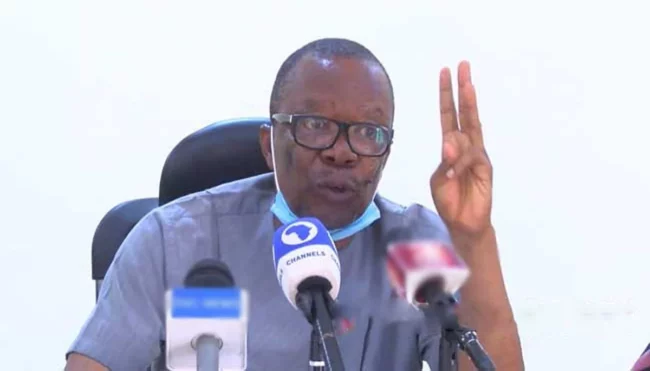
The Academic Staff Union of Universities (ASUU) has expressed profound disappointment with the Federal Government for failing to meet any of its demands, despite months of negotiations aimed at resolving long-standing issues between the two parties. Professor Emmanuel Osodeke, the president of ASUU, shared the union’s frustration in an interview with the Nigerian Tribune. When asked about the latest developments regarding their ongoing disputes with the government, Osodeke emphasised that, despite attempts to engage in dialogue, no substantial progress has been made. In recent months, ASUU had consistently threatened to call for a nationwide strike if the government continued to neglect their agreements. However, the government has been actively working to de-escalate the situation. Despite these efforts, ASUU has yet to see any concrete action on the issues at hand. Osodeke explained that while the government recently constituted a renegotiation team to engage with ASUU, the union has already completed its part of the process, awaiting feedback from the government’s representatives. “We have presented our positions on all the issues in contention, We are now waiting for the government’s team to take these positions back to their principals and return to us with feedback so that we can understand where we both stand.” Osodeke said. However, Osodeke noted that it has been two months since ASUU submitted its proposals, and the government’s team has yet to respond. “The implication of this delay is that the political class does not care about any development for the public university system,” he said. He further criticised the current administration for its lack of meaningful progress in the education sector. “Under previous governments, there was at least some positive movement on these issues, even if it was just one small thing. But nothing has been forthcoming from this government, No single issue has been permanently resolved since this government came into power over a year ago.” Osodeke lamented. Osodeke went on to highlight the growing disparity between the educational opportunities available to the rich and the poor. He said that while the wealthy continue to send their children abroad for education, leaving the children of ordinary Nigerians to suffer in a deteriorating local educational system, the government seems indifferent to the plight of public universities. “This narrative must change if Nigeria is serious about genuine progress as a country,” Osodeke asserted. ASUU is expected to hold a meeting soon to determine the next course of action in response to the government’s inaction. The union’s continued dissatisfaction with the federal government’s approach raises the prospect of renewed industrial action, which would further highlight the deepening crisis in Nigeria’s public university system.
